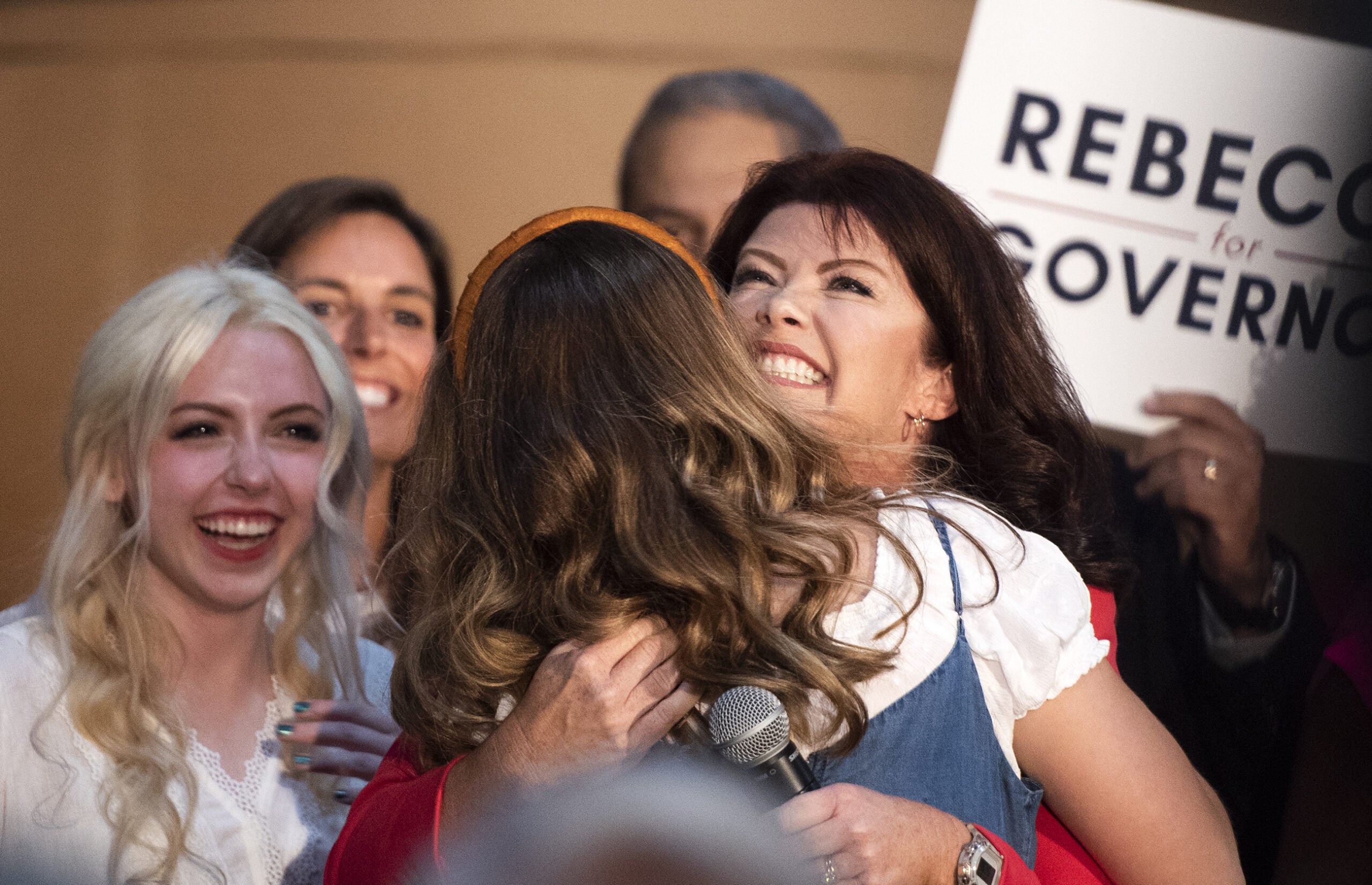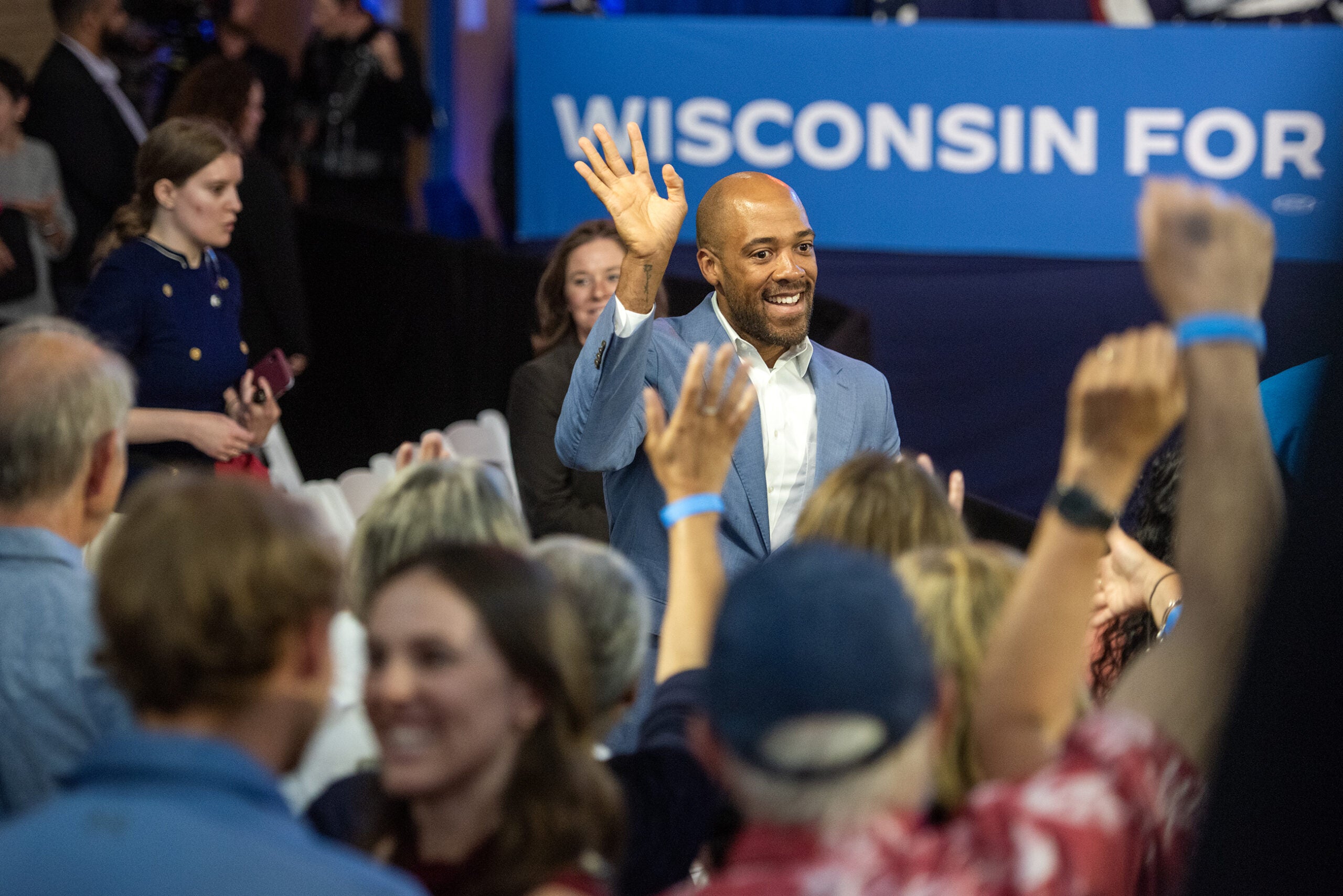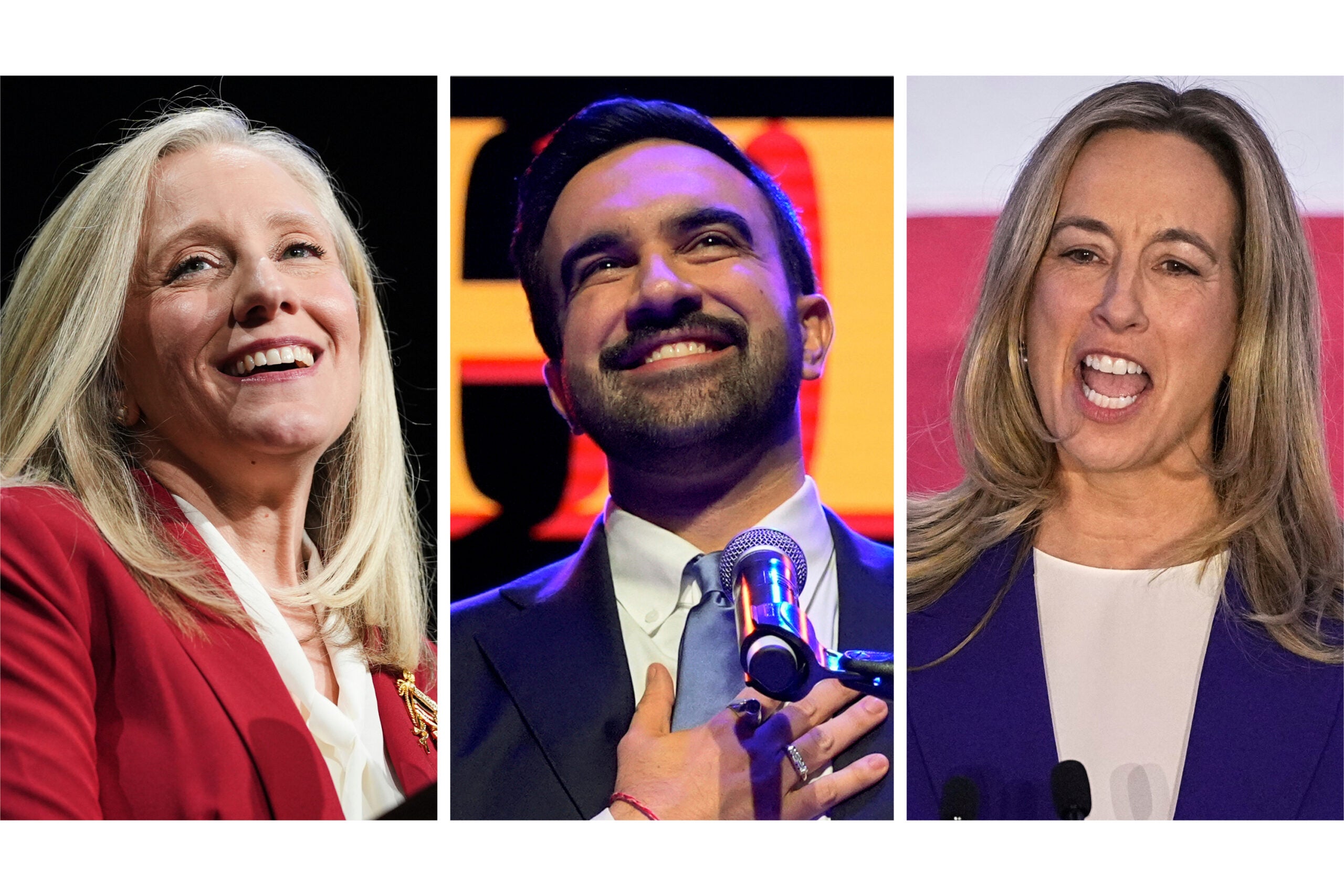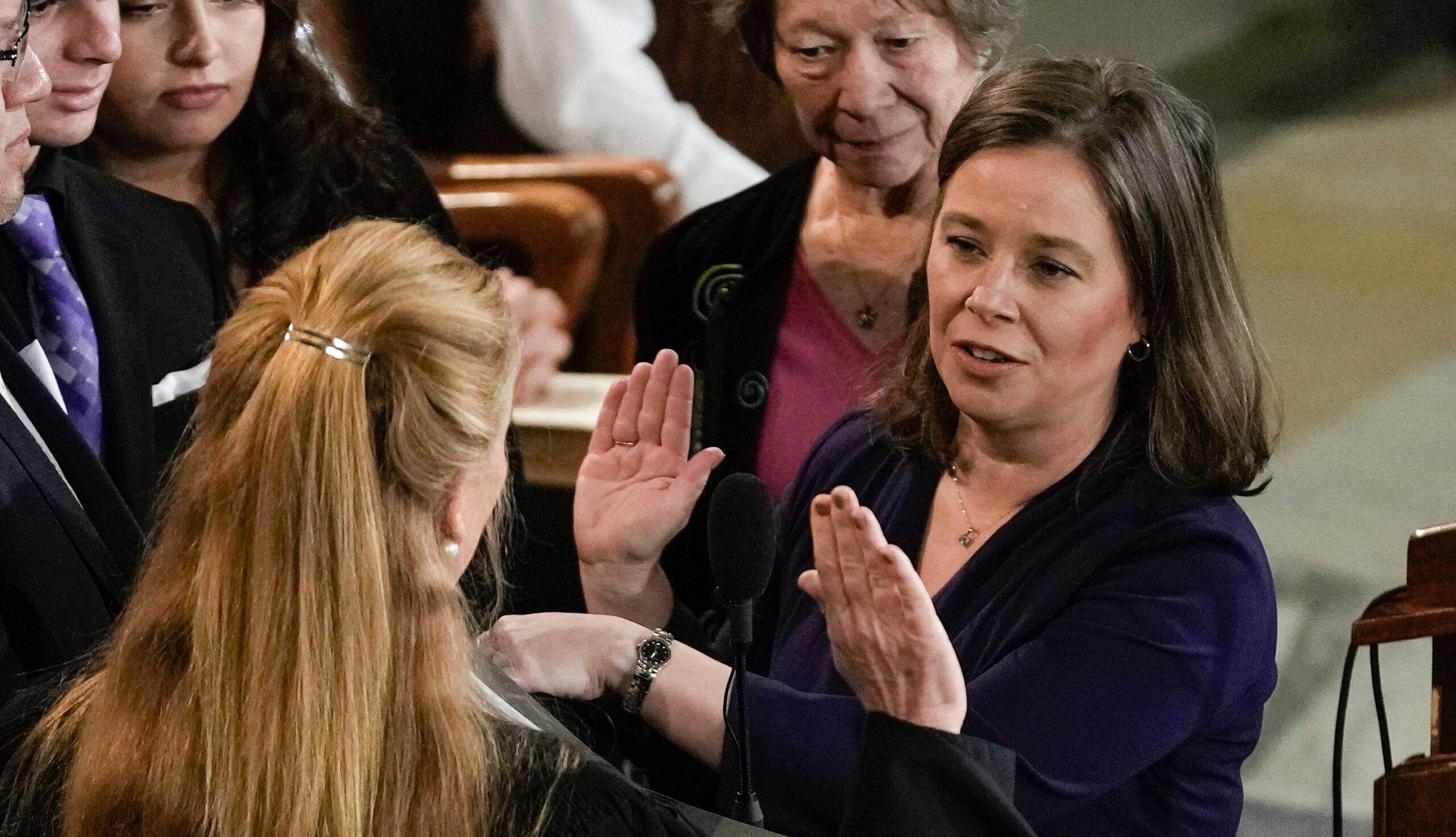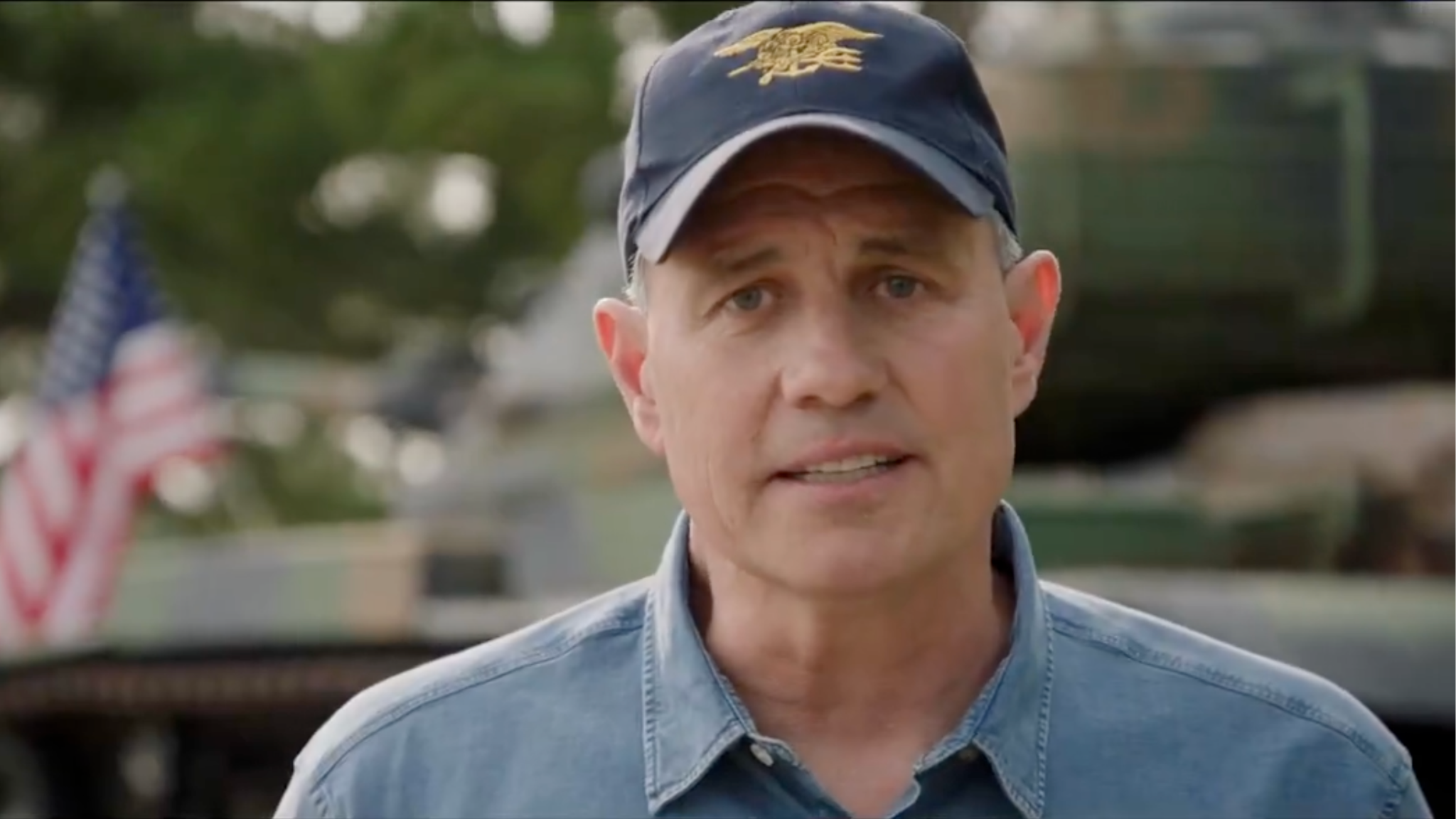There have been big events during Rebecca Kleefisch’s 2022 run for governor that have not broken her way. But in the closing weeks of her primary campaign, there are little moments that have Kleefisch feeling like it’s 2010 all over again.
That’s the year Kleefisch jumped headfirst into politics, winning a GOP primary for lieutenant governor to join Scott Walker’s ticket. It’s the year Walker, Kleefisch and legislative Republicans won control of state government and fundamentally changed Wisconsin.
Kleefisch first built her political brand in her 2010 campaign for lieutenant governor. She was a former TV reporter who introduced herself to voters as a minivan-driving mom who was fed up with state government. The next year, she stood by Walker as he introduced his landmark changes to union laws. And in 2012, Kleefisch became the first lieutenant governor in U.S. history to survive a recall election.
News with a little more humanity
WPR’s “Wisconsin Today” newsletter keeps you connected to the state you love without feeling overwhelmed. No paywall. No agenda. No corporate filter.
This period in Wisconsin history — in Kleefisch’s personal history — earned her goodwill among some GOP activists that she still enjoys today. She got cheers during a recent speech to Republicans at a picnic in Verona, and afterward, while Kleefisch was being interviewed, she received a friendly interruption.
“Go Rebecca!,” yelled a woman from across the park.
“Thank you! Love you guys!,” Kleefisch yelled back, smiling.
“It’s stuff like that, all over the state,” Kleefisch said, returning to the interview. “That’s how I know we have tremendous momentum. It feels very much like the end of 2010 to me.”
There are parallels between that 2010 campaign and this one. Democrats control the White House and Congress. Historic trends suggest this could be another Republican year.
But Kleefisch, despite her legacy and years of laying the groundwork for this run for governor, is in real danger of losing her primary to Republican construction executive Tim Michels.
Kleefisch secured key endorsements early in the race, but some of Wisconsin’s biggest GOP donors never warmed to her, and whispers that another Republican might enter the race never went away.
There are also tangible signs that the Republican electorate of 2022 is significantly different from the voters who first elected Kleefisch in 2010. Former Republican President Donald Trump built a different, more heavily rural coalition. Kleefisch, and her suburban GOP base, may not carry the weight they did a dozen years ago.
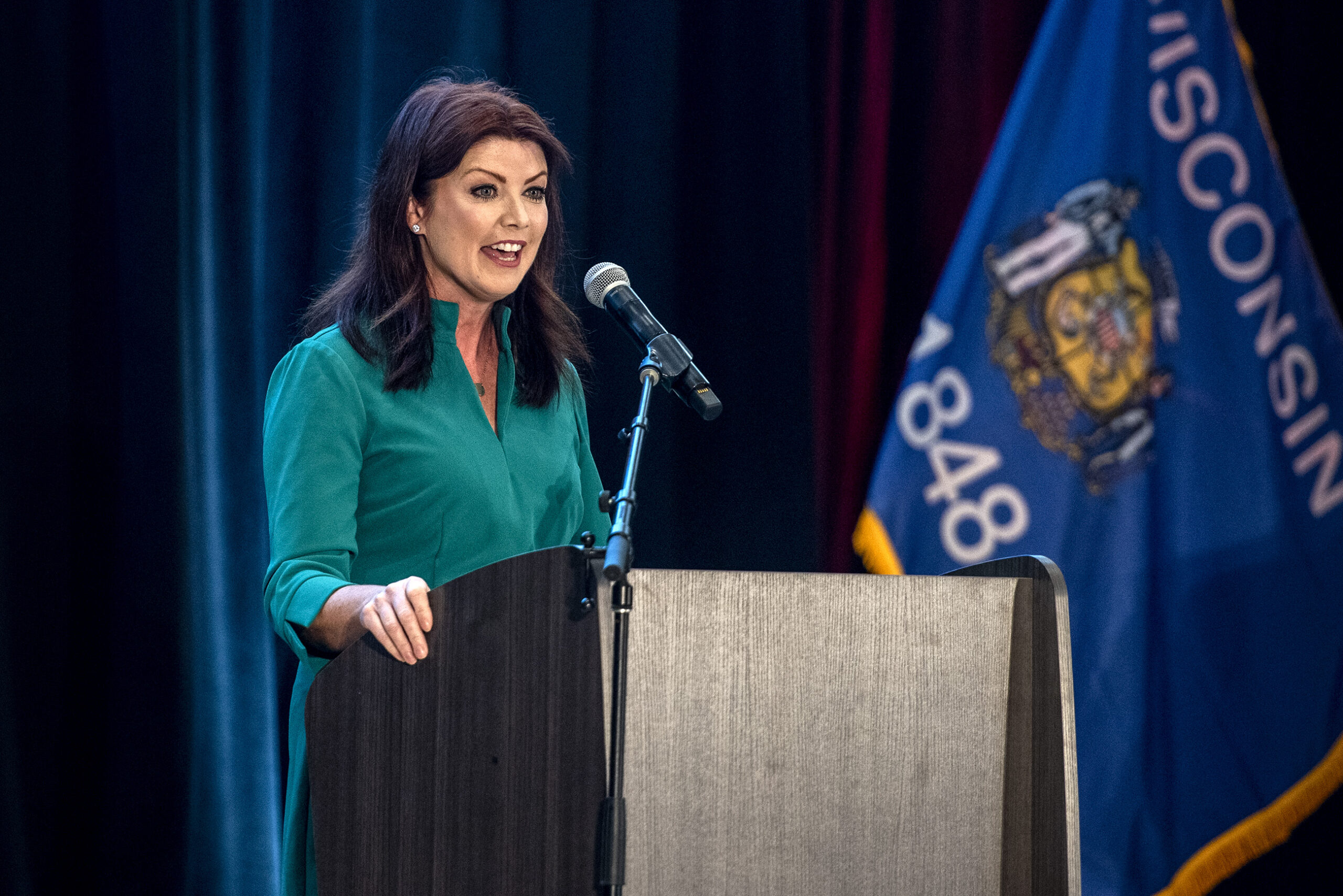
It’s Kleefisch on the ballot, but there’s more at stake
There’s no mistaking that Kleefisch is the favorite of the Republican establishment. The power brokers of the state GOP have come out and said it.
Walker could have endorsed his former lieutenant governor and left it at that. Instead, he’s given speeches and cut ads on her behalf. His pitch for her: She’s the only conservative running for governor.
“I certainly think we’re connected,” Walker said in an interview. “I think the connections of what we did in the past … show voters that the things that she’s laying out in her plan of action for the next four years are things that she’s going to get accomplished.”
Assembly Speaker Robin Vos, R-Rochester — the longest-serving speaker in Wisconsin history — endorsed Kleefisch, too.
“I think Rebecca Kleefisch has the best chance to beat Gov. Evers,” Vos said.
Another power broker of Republican politics, the business lobbying giant Wisconsin Manufacturers and Commerce, typically sits out GOP primaries. But WMC endorsed Kleefisch early in January of this year. A few months later in April, so did the Tavern League of Wisconsin.
With each endorsement has come an overt reminder that Kleefisch was there a decade ago when Republicans moved so swiftly to reshape state government that they regularly drew tens of thousands of protesters to the capitol. These events made Wisconsin the center of the political universe. The Walker administration’s success in pushing its policies through despite the protests built the Wisconsin GOP into one of the most revered state parties in the nation.
Kleefisch said she first considered she might be governor some day during Walker’s run for president in 2015. While Walker’s candidacy ended quickly, she said the experience gave her the mental freedom to think about how she would handle the job.
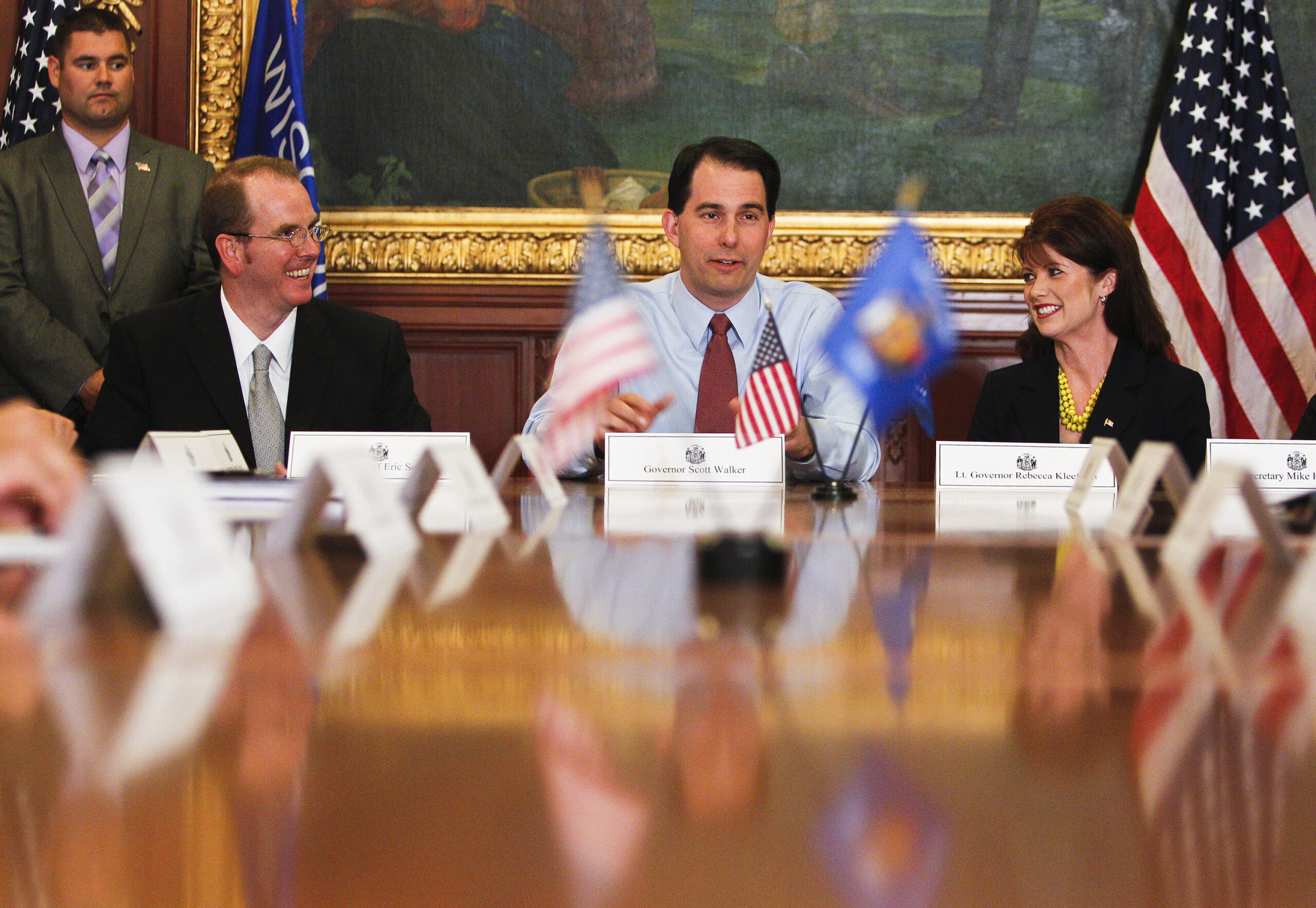
After Walker narrowly lost reelection to Democratic Gov. Tony Evers in 2018, she maintained a public profile in GOP politics. She was considered the GOP frontrunner to challenge Evers essentially from the moment Walker announced that he would not run for office again in 2022. In 2020, Kleefisch launched the 1848 Project, an advocacy group that promised to produce the next conservative agenda for Wisconsin. The move was widely viewed as a clear sign from Kleefisch that her official campaign for governor was right around the corner. She was sending a message to Republicans, and setting herself up as the candidate to beat.
But for many Republicans, it hasn’t mattered.
“Well, you know, for some folks, it’s the oldest thing in the book,” said longtime Republican operative Brian Schimming. “That was then and this is now.”
Despite all the ways 2022 is different than 2010, though, Schimming said Walker remains a powerful motivator with Republican primary voters.
“There’s a reason she’s got him out front as much as she does,” Schimming said. “I think that’s her strongest hand to play. And I would probably play that hand, too.”
Kleefisch’s approach could still win her the race, Schimming said. But she may still have her work cut out trying to win over Walker’s old base.
“Lieutenant governor’s job is not being governor,” Schimming said. “So she got to be known very well as part of the reform ticket with Walker and all that, but still not the governor.”
Schimming said a competitive primary also means Kleefisch has to go beyond the base of the party to win. At the recent state GOP convention in Middleton, Kleefisch fell short of winning an official endorsement, but a majority of delegates still chose her as their preferred candidate for governor. That crowd numbered more than a thousand.
“You’re gonna have several hundred thousand people vote in this primary,” Schimming said. “It’s still a big sales job.”
There’s also a chance that some of those undecided GOP voters actively dislike all of Kleefisch’s establishment ties. In 2010, she and Walker were able to run as political outsiders. Now they have years of government service on their resumes, and the emergence of former President Trump onto the political scene has reset the political clock.
“Those who were standard-bearers before are not necessarily in the positions that they had been in terms of what their endorsements mean,” said Lilly Goren, a professor of political science at Carroll University in Waukesha.
One major GOP endorsement escaped Kleefisch. Trump endorsed Michels, who has run a campaign as a “political outsider.” Michels has promised to shake up Madison, like Walker and Kleefisch did more than a decade ago.
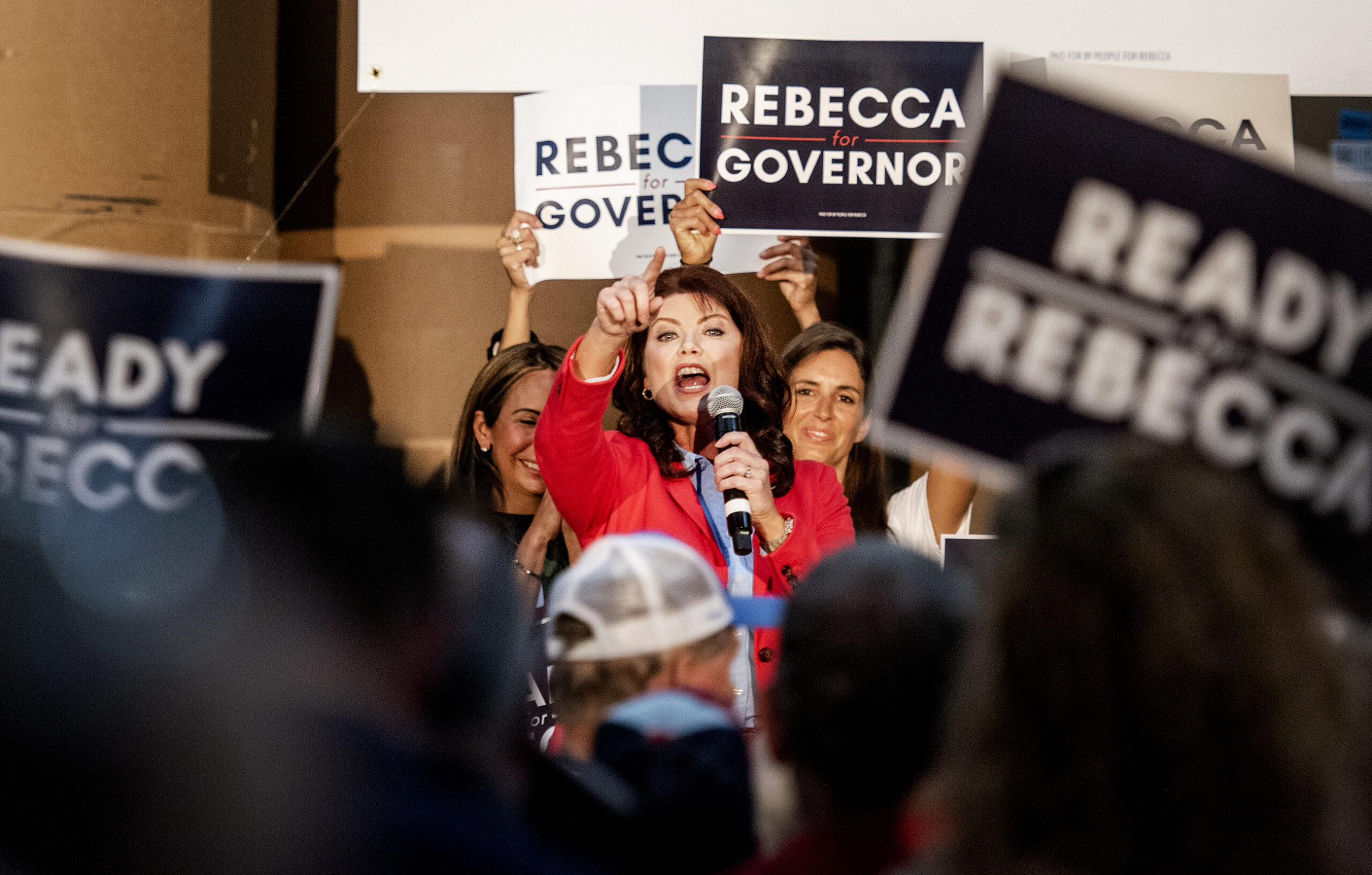
Michels’ candidacy, Trump’s endorsement reshaped race
Michels isn’t quite an outsider. He ran for U.S. Senate against Democrat Russ Feingold in 2004, and he’s been a regular donor to Republican candidates, including Walker and Kleefisch. Michels even served on the board for Kleefisch’s 1848 Project.
But as of 2021, Michels wasn’t one of the people political observers named as a likely gubernatorial candidate. He entered the race relatively late, declaring his candidacy in April. But he changed the dynamic of the race shockingly fast.
The Trump endorsement was a big factor, as was Michels’ willingness to spend $8 million of his own money on TV advertising. In the first Marquette poll released since Michels entered the race, he was virtually tied with Kleefisch.
Kleefisch’s response, with Walker’s help, has been to go negative against Michels.
“Primaries are about vetting people,” Kleefisch said. “He’s getting vetted.”
Her recent ad attacked Michels’ company for letting its workers protest Wisconsin’s “right to work” legislation banning mandatory union dues at private sector businesses and for supporting raising the gas tax. Michels disputes both claims.
The attacks could work, but campaigns with a comfortable lead rarely resort to such an approach.
“It tells us that she believes that this is a real close, real competitive race and that she needs to do that,” said Kyle Kondik, managing editor of Sabato’s Crystal Ball at the University of Virginia Center for Politics.
Kondik thinks the outcome of the race could hinge more on geography than it does personalities. Michels is from Brownsville, near Wisconsin’s Fox Valley — considered one of the swing regions of the state. Trump won Wisconsin in 2016 by turning out the vote in the state’s rural areas, and nearly pulled it off again in 2020. Kleefisch and Walker draw their strength from the GOP’s traditional base in southeast Wisconsin.
“Republicans still do very well in the Milwaukee suburbs,” Kondik said. “But not quite as well as they used to.”
According to a list of recent campaign stops released by her staff, Kleefisch has been busy in southeast Wisconsin, but she’s also beat a path to the Green Bay area and north to Rhinelander.
Her pitch to voters promises a new round of conservative legislation that includes moving to a flat tax and possibly eliminating the state income tax altogether. She also wants universal school choice, which would eliminate the income and enrollment limits on the private school voucher program, a move she said would bring protesters to the Capitol again.
She’s been promising this agenda for the better part of a year and laying the foundation for this campaign for years before that. But when she’s asked why she hasn’t been able to put this race away, Kleefisch challenges the premise of the question.
“Nobody’s entitled to anything,” Kleefisch said. “Things must be earned. And there’s no one who can outwork me. That was who I was in 2010. That’s who I am now.”
WPR is profiling candidates for governor and U.S. Senate ahead of the Aug. 9 primary election. This week, read profiles for gubernatorial candidates Rebecca Kleefisch, Tim Michels and Tim Ramthun. Next week, a series of profiles will focus on Democrats running for Senate.
Wisconsin Public Radio, © Copyright 2025, Board of Regents of the University of Wisconsin System and Wisconsin Educational Communications Board.

